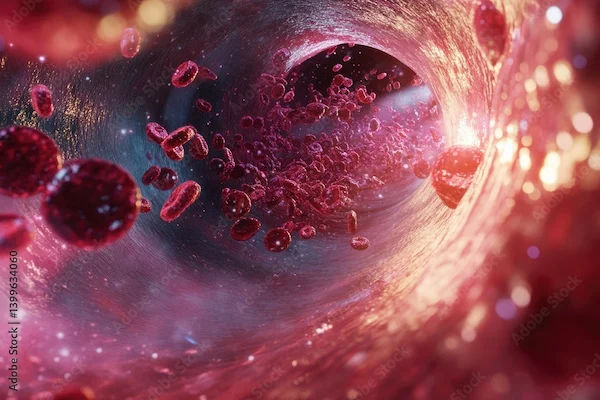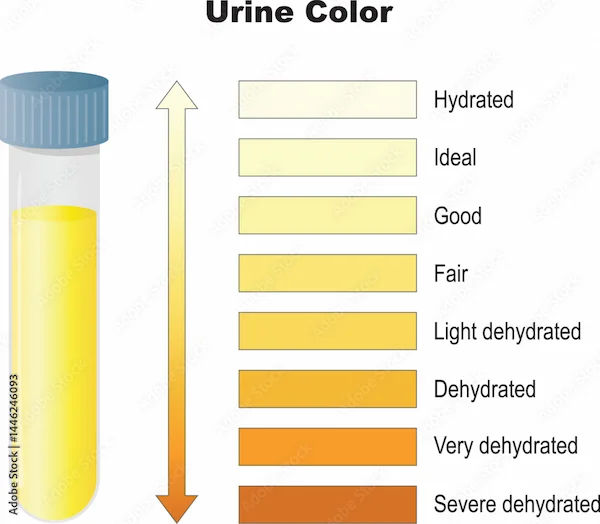Kidney Function Test Information
A Kidney Function Test (KFT) checks how well your kidneys are working by measuring waste levels and other key indicators. Learn about symptoms, test details, preparation, and tips to maintain kidney health.


Your kidneys play a vital role in keeping your body healthy by filtering waste, balancing fluids, and regulating blood pressure. If they aren’t working properly, toxins can build up in your body, leading to serious health issues. A Kidney Function Test (KFT) helps assess how well your kidneys are functioning.
In this article, we’ll explain:
- What a Kidney Function Test is
- Why it’s important
- Common symptoms of kidney problems
- What the test measures
- How to prepare for it
- Tips for keeping your kidneys healthy
What is a Kidney Function Test?
A Kidney Function Test (KFT) is a group of blood and urine tests that check how well your kidneys are working. These tests measure levels of waste products, electrolytes, and proteins in your blood and urine to detect any abnormalities.
Consult Top Kidney Specialist
Why is a KFT Important?
Kidney diseases often develop silently, meaning you may not notice symptoms until the condition has progressed. Early detection through KFT can help prevent complications like chronic kidney disease (CKD) or kidney failure.
Common Symptoms of Kidney Problems
If your kidneys aren’t functioning properly, you may experience:
- Fatigue and weakness
- Swelling in legs, ankles, or face (edema)
- Frequent urination (especially at night)
- Foamy or bloody urine
- High blood pressure
- Loss of appetite or nausea
- Itchy or dry skin
If you notice any of these symptoms, consult a doctor and consider getting a KFT.
What Does a Kidney Function Test Measure?
A standard KFT includes the following tests:
1. Blood Tests
- Serum Creatinine – A waste product from muscle activity. High levels indicate poor kidney function.
- Blood Urea Nitrogen (BUN) – Measures nitrogen in your blood from waste breakdown. Elevated BUN suggests kidney issues.
- Glomerular Filtration Rate (GFR) – Estimates how well your kidneys filter blood. A low GFR means reduced kidney function.
- Electrolytes (Sodium, Potassium, Chloride) – Imbalances can affect kidney health.
2. Urine Tests
- Urinalysis – Checks for protein, blood, or infection in urine.
- AlbumintoCreatinine Ratio (ACR) – Detects protein (albumin) leakage, a sign of kidney damage.
Get Your Symptoms Checked now.
Who Should Get a Kidney Function Test?
You may need a KFT if you:
- Have diabetes or high blood pressure (major risk factors for kidney disease)
- Experience kidneyrelated symptoms (swelling, fatigue, changes in urination)
- Have a family history of kidney disease
- Are on medications that affect kidneys (e.g., certain painkillers)
- Are above 60 years old (kidney function declines with age)
How to Prepare for a Kidney Function Test
- Fasting: Some tests may require fasting for 812 hours. Check with your doctor.
- Hydration: Drink enough water unless instructed otherwise.
- Medications: Inform your doctor about any medicines you take, as some can affect results.
The test involves a simple blood draw and urine sample. Results are usually available within a day.
Tips for Keeping Your Kidneys Healthy
1. Stay Hydrated – Drinking enough water helps kidneys flush out toxins.
2. Eat a Balanced Diet – Reduce salt, processed foods, and excess protein. Include fruits, vegetables, and whole grains.
3. Control Blood Pressure & Diabetes – These are leading causes of kidney damage.
4. Avoid Smoking & Excessive Alcohol – Both harm kidney function.
5. Exercise Regularly – Helps maintain a healthy weight and blood pressure.
6. Limit Painkillers – Overuse of NSAIDs (like ibuprofen) can damage kidneys.
When to See a Doctor
If your test results show abnormal kidney function, your doctor may recommend further tests or lifestyle changes. Early intervention can slow or prevent kidney damage.
Need a Kidney Function Test?
If you’re experiencing symptoms or have risk factors, consider booking a Kidney Function Test through Apollo 24|7. Early detection can save your kidneys and overall health.
Final Thoughts
Your kidneys are essential for overall health, and regular checkups can help catch problems early. If you’re at risk or notice symptoms, don’t wait—get tested and take steps to protect your kidney health.
Consult Top Kidney Specialist
Consult Top Kidney Specialist
Dr Ch Sashidhar
Nephrologist
20 Years • MBBS, MD General Medicine, DNB, Nephrology
Secunderabad
Apollo Hospitals Secunderabad, Secunderabad

Dr Praveen Kumar Etta
Nephrologist
10 Years • MBBS,MD DM(SGPGI) FORMER ASST(PIMS)
Hyderabad
Apollo Spectra Ameerpet, Hyderabad

Dr. Pardha Saradhi
Nephrologist
9 Years • MBBS, MD-DNB (Gen. Med.), DNB (Nephro)
Hyderabad
Apollo Hospitals D R D O kanchanbagh, Hyderabad
(50+ Patients)

Dr Ajay Kumar Sharma
Transplant Specialist Surgeon
39 Years • MBBS, MS, DNB, FRCS (Glas), FRCS (Edin), FRCS (General Surgery), MSc Medical Education
Delhi
Apollo Hospitals Indraprastha, Delhi

Dr. Aswini Kumar Panigrahi
Nephrologist
23 Years • MBBS, MD (Int. Med.), DNB Nephro
Hyderabad
Apollo Hospitals Jubilee Hills, Hyderabad
(200+ Patients)
Consult Top Kidney Specialist
Dr Ch Sashidhar
Nephrologist
20 Years • MBBS, MD General Medicine, DNB, Nephrology
Secunderabad
Apollo Hospitals Secunderabad, Secunderabad

Dr Praveen Kumar Etta
Nephrologist
10 Years • MBBS,MD DM(SGPGI) FORMER ASST(PIMS)
Hyderabad
Apollo Spectra Ameerpet, Hyderabad

Dr. Pardha Saradhi
Nephrologist
9 Years • MBBS, MD-DNB (Gen. Med.), DNB (Nephro)
Hyderabad
Apollo Hospitals D R D O kanchanbagh, Hyderabad
(50+ Patients)

Dr Ajay Kumar Sharma
Transplant Specialist Surgeon
39 Years • MBBS, MS, DNB, FRCS (Glas), FRCS (Edin), FRCS (General Surgery), MSc Medical Education
Delhi
Apollo Hospitals Indraprastha, Delhi

Dr. Aswini Kumar Panigrahi
Nephrologist
23 Years • MBBS, MD (Int. Med.), DNB Nephro
Hyderabad
Apollo Hospitals Jubilee Hills, Hyderabad
(200+ Patients)





